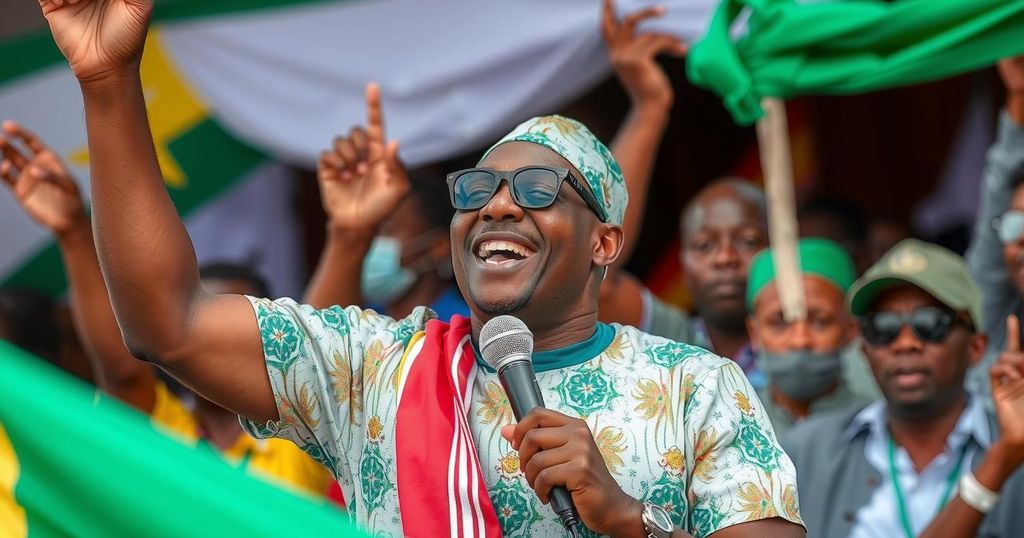The opposition in Ghana has claimed that preliminary results from the recent presidential election show John Mahama leading over incumbent Vice President Mahamudu Bawumia. Despite ongoing official tallying, early reports suggest economic concerns influenced voter sentiment, potentially favoring Mahama’s candidacy against the ruling party amidst discussions of national discontent with current governance.
On Sunday, the opposition in Ghana proclaimed that preliminary results indicated their candidate, John Mahama, as the victor of the recent presidential election. According to officials, the Central Election Commission was still in the process of consolidating the official vote counts. The election witnessed Mahama of the National Democratic Congress (NDC) competing against Mahamudu Bawumia of the ruling New Patriotic Party (NPP), with the economy and rising living costs being central themes of the campaign.
The electoral battle not only sought to choose a successor to outgoing President Nana Akufo-Addo, who is limited to two terms but also included elections for a new parliamentary body. Sammy Gyamfi, the NDC spokesperson, stated that their internal counts displayed Mahama leading with 56.3 percent of the votes compared to Bawumia’s 41.3 percent. Local media, ChannelOne TV, corroborated these findings from a count of 42 out of 276 constituencies.
Despite the generally peaceful atmosphere surrounding the voting process, violence marred the occasion, resulting in two fatalities from shooting incidents. The electoral commission has announced that final tallies might be available by Tuesday. Both parties had deployed representatives at polling stations to monitor and document the initial vote counts prior to the official collation.
Historically, Ghana’s political landscape has exhibited stability, with the NPP and NDC alternating power since 1992. Bawumia aimed for an unprecedented third consecutive term for the NPP; however, criticism regarding President Akufo-Addo’s economic policies proved challenging. While inflation has decreased from over 50 percent to approximately 23 percent, economic struggles remained a primary concern for many voters, creating an opportunity for Mahama’s return, after unsuccessful attempts in 2016 and 2020.
The article discusses the recent presidential election in Ghana, which featured a significant contest between John Mahama of the NDC and Mahamudu Bawumia of the NPP. The backdrop of the election includes a deeply strained economy in Ghana, which has experienced high inflation, debt issues, and a resultant $3 billion International Monetary Fund (IMF) bailout. With the outgoing president, Nana Akufo-Addo, stepping down after two terms, this election served as a pivotal moment for both political parties. The historical context of Ghanaian politics highlights a tradition of peaceful electoral transitions between the main parties, further emphasizing the election’s significance in the country’s democratic journey.
In conclusion, while the opposition in Ghana has claimed a lead in the presidential election, official confirmation is still pending as the electoral commission compiles the final results. The economic situation has played a crucial role in shaping voter sentiment, favoring Mahama’s return to prominence against Bawumia’s leadership amidst prevalent dissatisfaction with government policies. The election results, expected soon, will determine the direction of Ghana’s leadership amidst ongoing economic challenges.
Original Source: themercury.com







